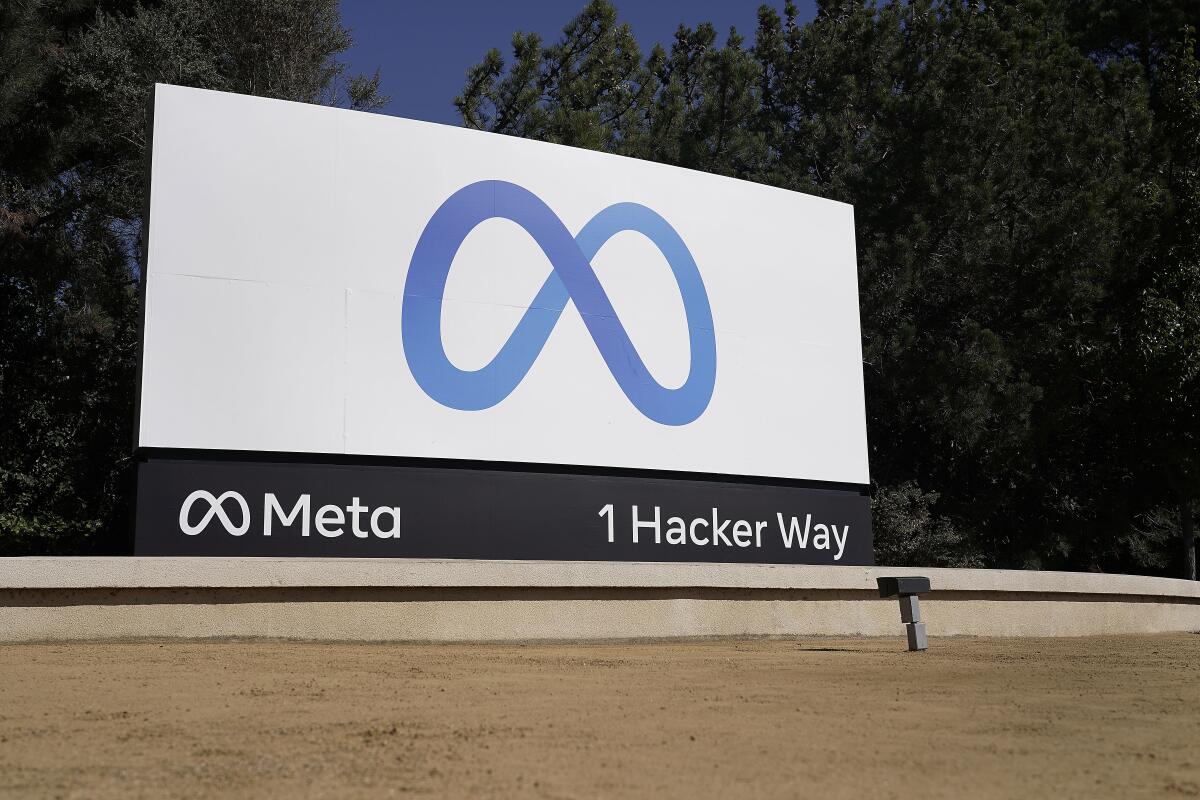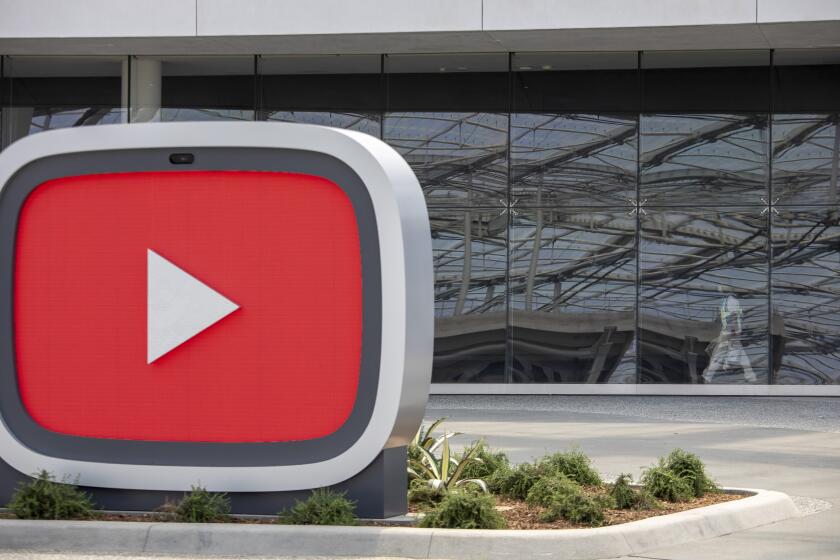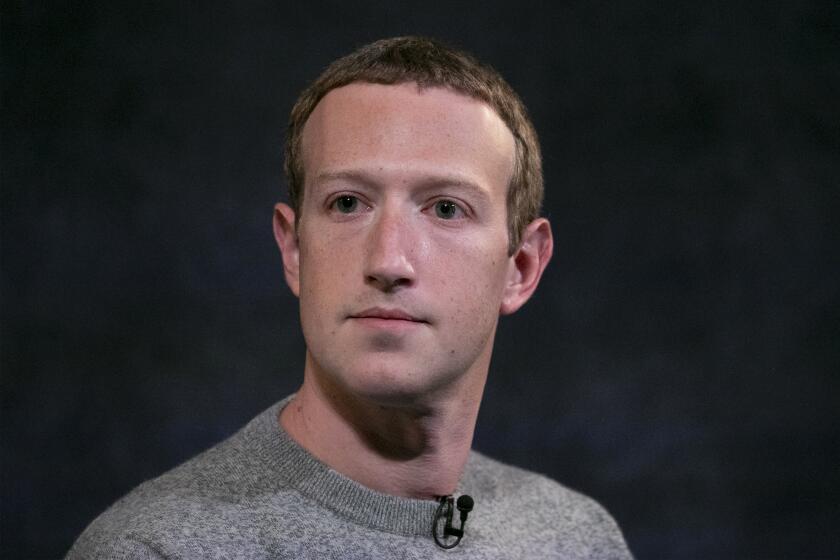Facebook Live copied tech from war veteran’s app, jury finds in $175-million verdict

- Share via
The parent company of Facebook and Instagram was ordered to pay nearly $175 million for violating patents held by the maker of a push-to-talk app founded by a former Green Beret who had sought to solve battlefield communications problems he encountered in Afghanistan.
A federal jury in Austin, Texas, deliberated for a day before finding that Meta Platforms Inc. infringed two patents held by Voxer Inc., and awarded Voxer $174.5 million in damages, according to court documents filed Wednesday.
Voxer had accused the Menlo Park, Calif., social media giant of taking its proprietary streaming technologies and incorporating them into Facebook Live and Instagram Live after a potential collaboration fell through.
Tom Katis, Voxer’s co-founder and chief executive until 2015, had been inspired by his battlefield experiences to find new technology that could enable transmission of voice and video communications “with the immediacy of live communication and the reliability and convenience of messaging,” according to court documents.
He had reenlisted after 9/11 and was serving as a communications sergeant with the Army Special Forces in 2003 when his unit was ambushed and he faced the shortcomings of existing systems while trying to coordinate medevacs and reinforcements, according to Voxer’s complaint.
YouTube announced Tuesday morning a suite of programs aimed at courting and keeping content creators. The elephant in the room: upstart competitor TikTok.
Voxer launched the Voxer Walkie Talkie app in 2011, and Facebook soon approached the company about a potential collaboration, court documents stated.
By February 2012, Voxer had shared its patent portfolio and proprietary technology with Facebook, but when early meetings failed to result in an agreement, “Facebook identified Voxer as a competitor although Facebook had no live video or voice product at the time,” the documents stated.
The social media giant then revoked Voxer’s access “to key components of the Facebook platform,” according to court documents.
The jury found that both Facebook Live, launched in 2015, and Instagram Live, launched in 2016, “incorporate Voxer’s technologies” and infringed two Voxer patents.
The first involves a system that progressively transmits streaming media over a network “as the streaming media is created and persistently stored, therefore enabling hybrid digital communications that can be both real-time and time-shifted; and by delivering video communication without first establishing an end-to-end connection over the network between the sender and receiver.”
The second also involves transmission of streaming media, “by generating two or more degraded versions of a streaming video message and transmitting an appropriate degraded version to each recipient; and by trans-coding the video media of a video message,” according to the documents.
In a quarterly earnings announcement, Meta — the parent of Facebook and Instagram — reported economic struggles. It’s plan to climb back? Copy TikTok.
In early 2016, Voxer met with senior Facebook executives and sent a statement that outlined the app’s patent portfolio “and specifically referenced the patent families” of all of the patents Meta would be accused of infringing, according to court documents.
Katis had “a chance meeting” with a Facebook Live senior product manager in late February 2016 and raised the issue of the platform’s patent infringement, encouraging the product manager to follow up with the senior Facebook executives, the documents stated.
“Facebook has prioritized live video messaging since the launch of Facebook Live and Instagram Live, with one report identifying Facebook Live as Facebook’s ‘top priority,’” according to the documents.
In a statement to The Times, a Meta spokesperson disputed the claims, saying the company believes that evidence presented at trial showed that Meta did not infringe Voxer’s patents.
“We intend to seek further relief, including filing an appeal,” the spokesperson said.
An attorney for Meta referred a request for a statement to the company.
Attorneys for Voxer said that the company “has an interesting history with Facebook” and that the trial provided a forum for each side to air its grievances.
“Facebook and Instagram put up a good fight,” said attorneys Robert Stone, Mike Powell and Sam Stake.
In closing statements, Voxer’s attorneys took aim at Meta. “The Voxer patented method does not include the step of big brother-type censorship because Voxer never considered using its live messaging platform to inhibit free speech,” they said. “Rather, Voxer sought to promote free speech through its game-changing live messaging inventions.”
More to Read
Sign up for Essential California
The most important California stories and recommendations in your inbox every morning.
You may occasionally receive promotional content from the Los Angeles Times.













